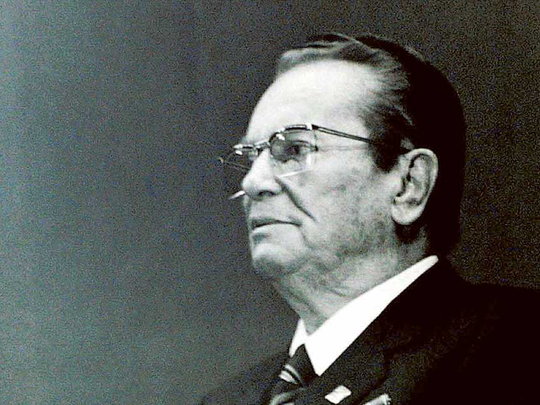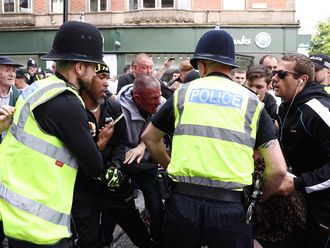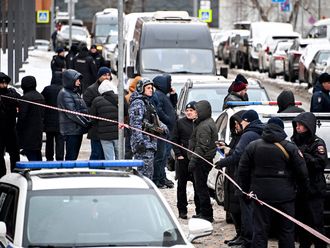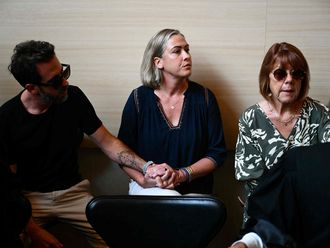
Belgrade: For 35 years since the death of communist Yugoslav leader Josip Broz Tito, tens of thousands of the extravagant strongman’s belongings have been the subject of legal wrangling.
This month, a Serbian court is finally expected to rule on the inheritance of his huge and eclectic range of possessions, from hunting rifles and paintings to marshal uniforms and even stones from the moon — a gift from US President Richard Nixon.
During his time at the helm of socialist Yugoslavia from the end of the Second World War until his death in 1980, Tito and his wife, Jovanka, enjoyed a lifestyle that impressed even Hollywood star Richard Burton, who visited the pair in 1971.
“They live in remarkable luxury unmatched by anything else I’ve seen, and [I] can well believe Princess Margaret who says the whole business makes Buck House look pretty middle-class,” Burton wrote in his diaries, referring to the Britain’s Buckingham Palace.
But today the extent of Tito’s assets to be divided up by the court remains unclear, even to relatives who await news of their inheritance: his son Misha, the four children of his late son Zarko and two of the late Jovanka’s sisters.
“There is no written document in which the court establishes what is to be inherited,” Svetlana Broz, one of Zarko’s daughters, said.
“We do not know what that will be until we receive the ruling,” she said.
When Tito died, precipitating the slow and bloody break-up of Yugoslavia, his possessions were estimated to be worth tens of millions of dollars.
In 1985 a law declared all of his belongings state property — a ruling that was later annulled after it was challenged by Jovanka, who died in 2013.
But a clear division between what Tito owned privately and what he used as the country’s top official was never made.
Proceedings were slowed down by the 1990s Balkan wars, and some of Tito’s property went to countries that emerged after Yugoslavia fell apart. His family also alleges widespread theft in the intervening years.
“Fabulously expensive watches, cars, weapons and other treasure disappeared,” Jovanka’s lawyer, Toma Fila, wrote in his memoirs.
Tito is admired for driving out Nazi German occupying forces in the Second World War with his partisan fighters, standing up to Soviet leader Joseph Stalin and founding the Non-Aligned Movement.
He made Yugoslavia one of the most prosperous communist countries, but political dissidents were jailed under his regime and critics denounce his personality cult and lavish lifestyle.
Historian Predrag J. Markovic said the initial lack of decisions from the state over Tito’s possessions stemmed from concern that they would damage his communist credentials.
“It was awkward as it was ideologically unacceptable that he and Jovanka had a lot of luxury things,” Markovic said.
Some 70,000 belongings are now stored in depots at Belgrade’s Museum of Yugoslav History, also home to Tito and Jovanka’s mausoleum.
In one of the depots, Tito’s suits and blue-and-white marshal uniforms hang from the ceiling and the shelves are full of model ships and planes, paintings, clocks and rifles — Tito was a passionate hunter. Among the most striking objects are an abstract ceramic statue, a gift from Soviet leader Joseph Stalin before the two leaders split in 1948, and Nixon’s stones from the moon, which were delivered to Tito by astronaut Neil Armstrong in 1969.
“We have no dilemma over what to do with the official gifts as they are state property in accordance with the law,” said Momo Cvijovic, who has been working in the museum collecting Tito’s belongings since 1978.
“The inheritance proceedings are about his personal things ... but that is a very complex and delicate problem.”
Cvijovic explained it was not clear-cut whether some gifts counted as personal or official, such as a golden cigarette case Tito regularly used — a gift from Greek or Ethiopian royalty.
Even the late leader’s clothes and 250 pairs of shoes are undefined as many of them were also presents, added Cvijovic.
Awaiting the court’s ruling with low expectations after so many years, Tito’s heirs said they hoped to receive at least small mementoes of their famous forebear.
Svetlana Broz said she would like one of his old identity cards “and the binoculars he used in the Second World War as commander of the army that defeated Hitler”.
Her half-brother, Joska, said he and his sister, Zlatica, had earlier asked for a ceremonial uniform and copies of his awards and decorations.
But he said they would now be happy with “anything that will remind us of him”.











